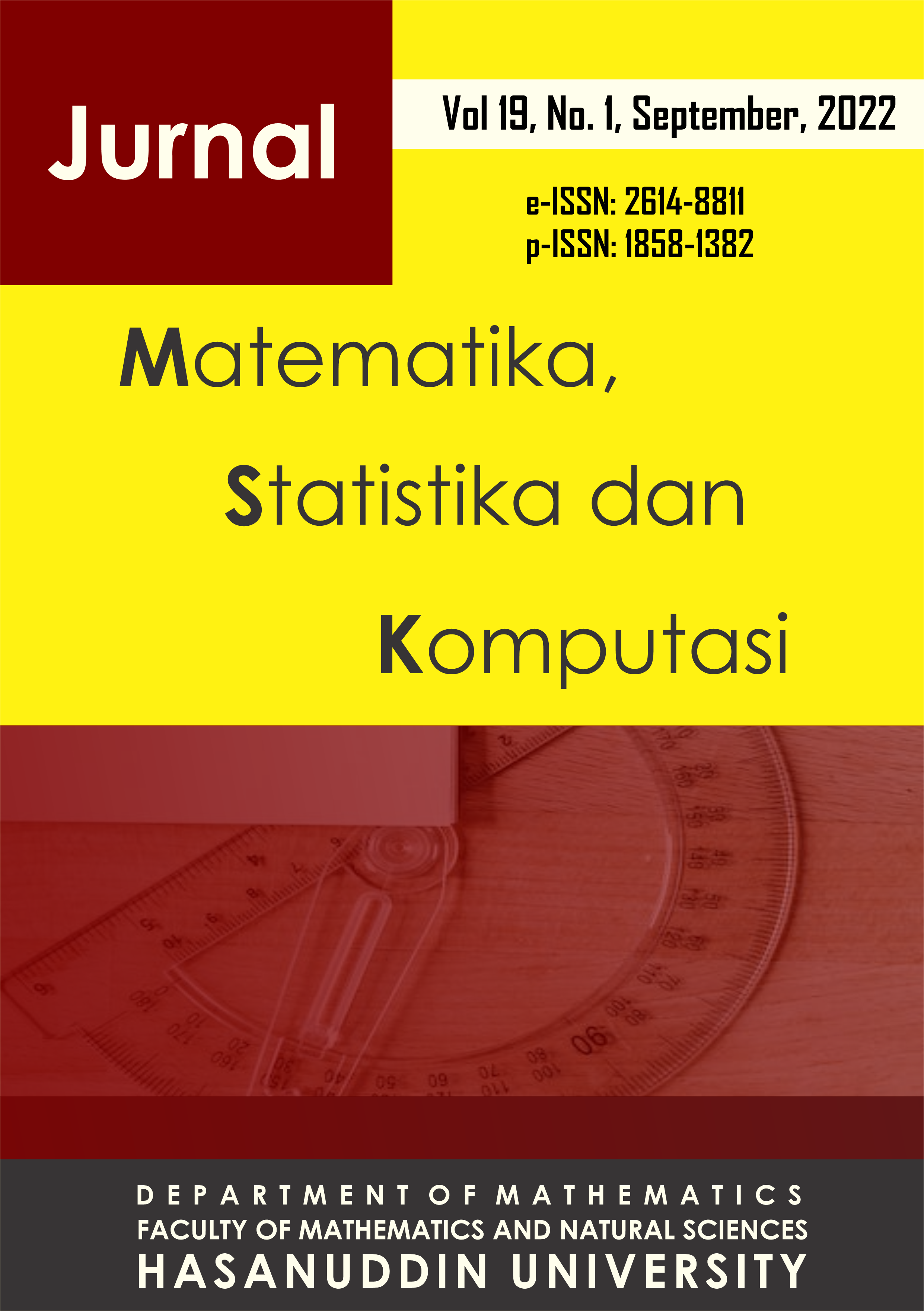Forecasting the Number of Foreign Tourist Visits to Indonesia Used Intervention Analysis with Step Function
DOI:
https://doi.org/10.20956/j.v19i1.21607Keywords:
ARIMA, Foreign Tourists, Intervention Analysis, Step FunctionAbstract
Intervention analysis is a method for processing time series data that can be used to explain the effect of an intervention that is influenced by external and internal factors. One application of this method is the data on the number of foreign tourist visits. Since the emergence of COVID-19 in Indonesia, especially in March 2020, Indonesia has begun to implement a lockdown policy and restrict foreign tourists from entering Indonesia. Lockdown policy caused the number of foreign tourist arrivals to decreased drastically. The purpose of this study was obtained a model and forecast results for the number of foreign tourist arrivals for the period November 2021 to November 2022 used a step function intervention analysis. The results of the analysis was shown that the ARIMA intervention model (0,1,1) with a step function with an intervention orde of b=0, s=0, and r=0 was the best model. The results of forecasting the number of foreign tourist visits to Indonesia will increase slowly from November 2021 to November 2022 with a MAPE value 9.91%.Downloads
References
Aswi & Sukarna, 2006. Analisis Deret Waktu Aplikasi dan Teori. Makassar: Andira Publisher.
BPS. 2021. Statistik Kunjungan Wisatawan Mancanegara Tahun 2020. Indonesia: Badan Pusat Statistik.
Ekayanti, R., Mara, M. N., & Sulistianingsih, E., 2014. Analisis Model Intervensi Fungsi Step untuk Peramalan Kenaikan Tarif Dasar Listrik (TDL) Terhadap Besarnya Pemakaian Listrik. Buletin Ilmiah Mat., Stat., dan Terapannya (Bimaster), 3(3), 175-184.
Husnita, F., Wahyuningsih, S., dan Nohe, D. A., 2015. Analisis Spektral dan Model ARIMA untuk Peramalan Jumlah Wisatawan di Dunia Fantasi Taman Impian Jaya Ancol. Jurnal Eksponensial, 6(1), 21-29.
Kim, M.J., Lee, C., James, F., Petrick., Kim, Y.S. 2020. The Influence or perceivied risk and intervention on international tourists bevahiour during the Hong Kong protest: Aplication of an extended model of goal directed behaviour. Journal of Hospitality and Tourism Management. 45 (2020), 622-632.
Lingyu, T., Jun, W., Chunyu, Z., 2020. Mode Decomposition Method Integrating Mode Reconstruction, Feature Extraction, and ELM for Tourist Arrival Forecasting. Chhaos, Solitons & Frcatals. 143(2021).
Makridakis, S., Wheelwright, S.C., & McGree, V.E., 1999. Metode dan Aplikasi Peramalan (edisi ke-2). Jakarta: Erlangga.
Montgomery, D. C., Jenning, C.L., & Kulachi, M., 2008. Introduction to Time Series Analysis and Forecasting. New Jersey: John Wiley and Sons.
Salamah, M., Suhartono & Wulandari, S.P. 2003. Buku Ajar Analisis Time Series. Surabaya: Institut Teknologi Sepuluh Nopember.
Sari, R.N., Mariani, S., & Hendikawati, P., 2016. Analisis Intervensi Fungsi Step Pada Harga Saham (Studi Kasus Saham PT Fast Food Indonesia Tbk). UNNES Journal of Mathematics, 5(2), 181-189.
Suhartono., 2007. Teori dan Aplikasi Model Intervensi Fungsi Pulse. Jurnal Ilmiah MatStat: 7(2), 191-241.
Wei, W. S., 2006. Time Series Analysis: Univariate and Multivariate Methods (2nd Edition). New York: Addison Wesley Publishing Company.
Zhang, H., Song, H., Wen, L., Liu, C., 2021. Forecasting Tourism Recovery Amid COVID-19. Annals of Tourism Research. 87 (2021), 1-16.
Downloads
Published
How to Cite
Issue
Section
License
Copyright (c) 2022 Author and publisher

This work is licensed under a Creative Commons Attribution 4.0 International License.

This work is licensed under a Creative Commons Attribution 4.0 International License.
Jurnal Matematika, Statistika dan Komputasi is an Open Access journal, all articles are distributed under the terms of the Creative Commons Attribution License, allowing third parties to copy and redistribute the material in any medium or format, transform, and build upon the material, provided the original work is properly cited and states its license. This license allows authors and readers to use all articles, data sets, graphics and appendices in data mining applications, search engines, web sites, blogs and other platforms by providing appropriate reference.








